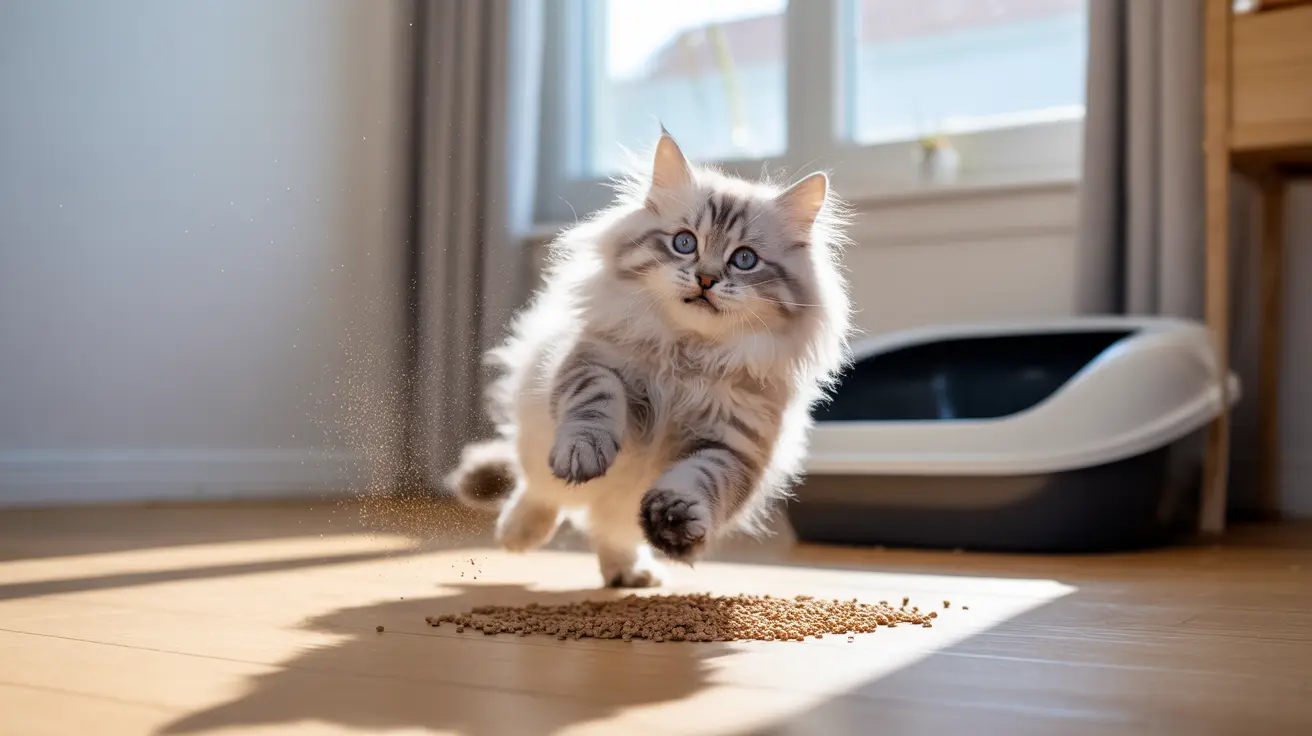If you've ever wondered why your cat is kicking litter out of the box, you're not alone. This common feline behavior can be frustrating for pet owners, but understanding its causes and solutions can help create a cleaner, more harmonious home environment. Let's explore the reasons behind this natural behavior and discover effective ways to manage it.
From instinctive behaviors to environmental factors, there are several reasons why cats might scatter litter outside their box. By understanding these motivations, we can implement practical solutions that work for both cats and their owners.
Natural Instincts Behind Litter Kicking
Cats are naturally programmed to bury their waste, a behavior inherited from their wild ancestors. This instinct serves to hide their presence from predators and prey alike. When your cat kicks litter vigorously, they're actually following these deep-rooted natural behaviors.
Sometimes, cats may become overzealous in their burying attempts, especially if they feel their scent isn't adequately covered. This can result in excessive digging and kicking, sending litter flying outside the box.
Environmental Factors and Box Setup
The design and placement of your cat's litter box play crucial roles in their litter-kicking behavior. A box that's too small or has low sides makes it easier for litter to scatter. Ideally, your cat's litter box should be 1.5 times their length to provide adequate space for natural movement.
Location matters too. Boxes placed in high-traffic areas or near food and water sources may cause your cat to feel rushed or uncomfortable, leading to more vigorous digging and scattering.
Health and Behavioral Considerations
Sometimes, excessive litter kicking can signal underlying health issues. Conditions like arthritis, digestive problems, or urinary tract infections might cause your cat to change their litter box behavior. If you notice sudden changes in their habits, it's important to consult with a veterinarian.
Stress and anxiety can also manifest through altered litter box behavior. Changes in the household, new pets, or unfamiliar sounds might cause your cat to dig more frantically or spend more time in the box.
Practical Solutions for Litter Control
Several effective solutions can help minimize litter scatter:
- Use a high-sided litter box or one with a top entry
- Place large litter-catching mats around the box
- Consider covered boxes for particularly vigorous diggers
- Maintain proper litter depth (2-3 inches)
- Clean the box regularly to prevent overcompensating behaviors
Experimenting with different types of litter can also help. Some cats prefer certain textures, and heavier litters tend to scatter less than lighter varieties.
Frequently Asked Questions
Why does my cat kick litter out of the box after using it?
This behavior is a natural instinct for cats to cover their waste and mark their territory. The kicking motion helps them ensure their waste is properly buried and their scent is managed.
How can I prevent my cat from scattering litter outside the litter box?
Use a high-sided or covered litter box, place litter-catching mats around the box, and ensure proper litter depth. Consider switching to a heavier litter type that's less likely to scatter.
Could my cat's litter kicking behavior indicate a health problem?
Yes, excessive or sudden changes in litter box behavior can indicate underlying health issues such as arthritis, digestive problems, or urinary tract infections. Consult a veterinarian if you notice significant changes.
What litter box features help reduce litter being thrown outside?
High sides, covered tops, large size (1.5 times your cat's length), and proper depth are key features that help contain litter. Some boxes also have special entrance designs to minimize tracking.
How does the type and depth of cat litter affect litter kicking and scattering?
Heavier litters tend to scatter less than lighter ones. The ideal depth is 2-3 inches - too little won't allow proper burying behavior, while too much might encourage excessive digging.
Conclusion
While litter kicking is a natural behavior for cats, understanding its causes and implementing appropriate solutions can help minimize the mess while keeping your cat happy and healthy. If problems persist or you notice sudden changes in behavior, always consult with your veterinarian to rule out any underlying health issues.






